Skin
Hot Pepper Beauty: Embracing Spice in Your Beauty Routine

Hot Pepper Beauty: A new hot pepper beauty trend is making waves in the beauty industry. Hot peppers, long prized for their spicy reputation in the culinary arts, are currently making waves in beauty, skincare, and hair care. However, what is hot pepper beauty exactly, and how can you use it in your regimen? Let’s examine the advantages and applications of hot peppers in beauty in more detail.
The Power of Capsaicin: A Hot Pepper’s Secret Weapon
Capsaicin, the ingredient that gives hot peppers their heat, is the essence of what makes hot peppers beautiful. For a considerable amount of time, capsaicin has been praised for its ability to reduce pain, enhance circulation, and even aid in weight loss. Capsaicin, an ingredient in cosmetic products, works its magic by promoting blood flow to the skin, giving it a radiant, natural flush.
Skincare: Rejuvenate and Revitalize
Vitamins A and C are found naturally in hot peppers, and they are both necessary for skin that is radiant and healthy. While vitamin C evens out and brightens skin tone, vitamin A aids in skin tissue healing and minimizes the appearance of wrinkles. Including hot pepper oils or extracts in your skincare routine can help revive and renew your skin, leaving you looking young and refreshed.
Haircare: Boosting Growth and Thickness
It has been demonstrated that capsaicin stimulates hair follicles, encouraging the growth and thickness of hair. Including products with hot pepper extract in your hair care regimen will help keep your hair strong and stop breaking. Hot pepper beauty products can help your locks shine by providing them with the necessary boost, whether they come in the form of shampoo, conditioner, or hair mask.

Makeup: Putting Some Flavor in Your Look
Hot pepper extracts can give your lips and cheeks a natural glow while adding a burst of color to your cosmetic regimen. If you want a tiny trace of color that lasts, look for lip balms or stains that contain extracts from spicy peppers. Additionally, for a warm, sun-kissed look, blushes and bronzers enhanced with hot pepper extracts are available.
DIY Beauty: Harnessing the Power of Hot Peppers
You can make your own hot pepper beauty products at home if you’re up for the challenge. To help you get started, here are a few easy homemade recipes:
One tablespoon of crushed spicy peppers and half a cup of olive oil are combined to make hot pepper hair oil. After 30 minutes of heating the mixture in a double boiler, drain the peppers out. After giving your scalp and hair a good massage, let the oil sit for half an hour, and then thoroughly rinse.

To make a capsaicin face mask, combine one teaspoon of hot pepper powder with one tablespoon of honey. Leave the mixture on your face for ten to fifteen minutes, being careful not to get any in your eyes. Rinse with warm water to get a revitalizing and tingling sensation.
For a spicy lip scrub, mix 1/2 teaspoon hot pepper powder, 1 tablespoon brown sugar, and enough coconut oil to form a paste. To exfoliate and perk up your lips, gently massage the scrub into them.
Safety Considerations:
Although there are many advantages to using hot pepper beauty treatments, it’s crucial to use them responsibly. Before using a new product extensively, always conduct a tiny patch test on your skin, especially if you have sensitive skin or are prone to allergies. As soon as you feel any irritation or pain, stop using the product.
Conclusion:
Considering all of the advantages that capsaicin has for skin and hair, hot pepper beauty is a fad that is sure to last. Hot pepper beauty products are beneficial whether you want to add a pop of color to your cosmetic routine, thicken your hair, or rejuvenate your skin. So why not try hot pepper beauty to add some spiciness to your beauty regimen?
Skin
Chemical Peels: The Ultimate Guide to Radiant Skin
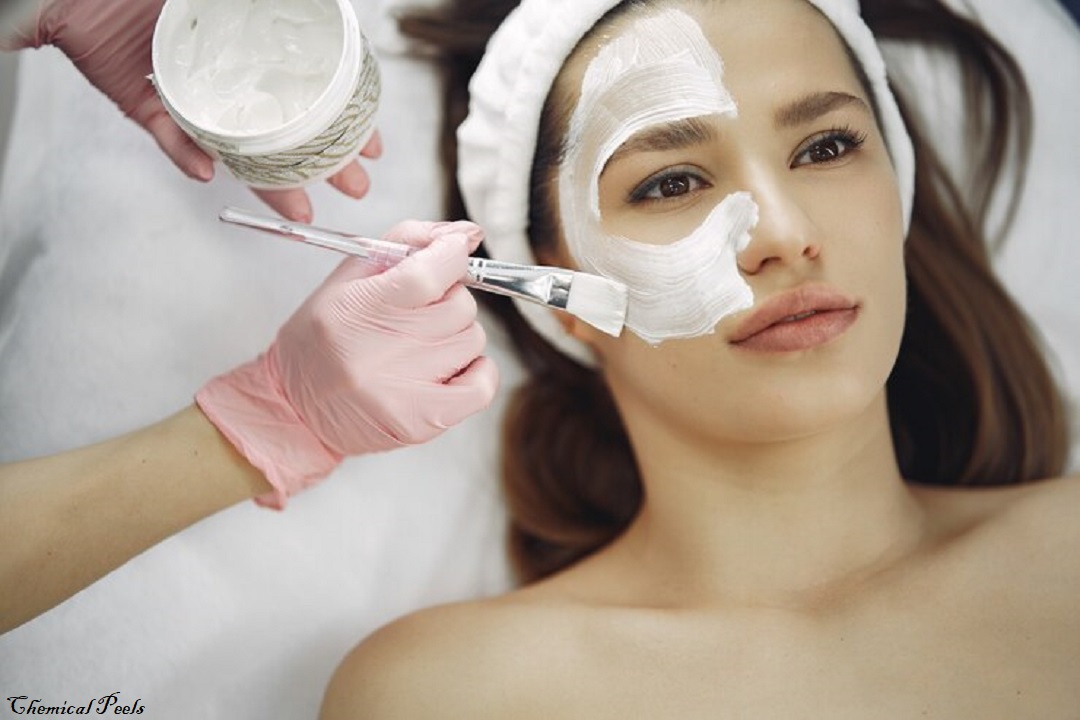
Chemical peels have been a mainstay in the skincare industry, offering minimum downtime and youthful, refreshed skin. However, precisely what are they? In short, a chemical peel is when the skin is treated with a chemical solution, which causes the skin to exfoliate and finally peel off. This process reveals the new, fresh skin underneath. Let’s examine this intriguing treatment in more detail.
Types of Chemical Peels
Superficial Peels
The mildest type of chemical peels are called superficial peels, or light peels. They use mild acids, such as alpha-hydroxy acids (AHAs), to gently exfoliate the top layer of skin. Because they don’t require any downtime, these peels are commonly referred to as “lunchtime peels” and are ideal for revitalizing the complexion.
Medium Peels
More skin is accessed by medium peels than by superficial ones. They work well for treating moderate skin discoloration, fine wrinkles, and age spots. Typically, they use trichloroacetic acid (TCA). Although medium peels require some recovery time, the outcomes are more striking than those of superficial peels.
Deep Peels
Although they require the longest recuperation period, deep peels produce the most noticeable effects. Deep peels and strong chemicals like phenol can be used to treat precancerous growths, deep scars, and severe wrinkles. These peels are typically done under medical supervision as a one-time therapy because of their severity.
How Chemical Peels Work
The Science Behind It
Chemical peels function by carefully removing layers of skin, which encourages the skin’s natural renewal process. Applying an acidic solution to the skin facilitates the breakdown of the connections holding dead skin cells together, allowing the skin to more easily shed them.
Key Ingredients Used
Alpha Hydroxy Acids (AHAs): Usually employed in superficial peels, AHAs are derived from milk and fruits.
BHAs, or beta-hydroxy acids: Salicylic acid is a well-liked BHA that is great for skin prone to acne because it goes deeper into the pores.
Trichloroacetic Acid (TCA): This medium-depth peeling agent addresses deeper skin problems.
The strongest of all, phenol is utilized in deep peels for very serious skin issues.
Benefits of Chemical Peels
Skin Rejuvenation
Skin renewal is one of the main advantages of chemical peels. Peels improve the overall texture and tone of the skin by revealing smoother, brighter skin by eliminating dead skin cells.
Acne and Scar Treatment
Chemical peels, especially those containing salicylic acid, are very good at reducing acne and its scars. They support clearer skin by assisting in pore unclogging and lowering irritation.
Hyperpigmentation Solutions
Chemical peels are a great way to address hyperpigmentation caused by UV damage, melasma, and age spots. They function by encouraging a more uniform skin tone by removing the skin’s pigmented layers.
Preparing for a Chemical Peel
Consultation with a Dermatologist
It is imperative to see a dermatologist before having a chemical peel. By evaluating your skin type and problems, they can suggest the best peel for you.
Pre-Treatment Skincare Routine
The right skincare regimen is essential to getting your skin ready for a chemical peel. Using particular cleansers, exfoliants, and moisturizers may be part of this to make sure your skin is ready for the treatment.
The Chemical Peel Procedure
What to Expect During the Treatment
The skin is completely cleaned before the chemical solution is administered during a chemical peel. Depending on the kind of peel, the solution is applied to the skin for a certain amount of time. It’s common to experience a burning or tingling sensation.
Pain and Discomfort Management
Pain with superficial and medium peels is often mild and can be controlled with over-the-counter analgesics. However, because deep peels are so intense, anesthesia and a topical anesthetic may be necessary.
Post-Treatment Care
Immediate Aftercare
After-peel care is essential for the best outcomes. This includes keeping the skin hydrated, utilizing mild skincare products, and minimizing sun exposure. Depending on the type of peel, your dermatologist will give you precise instructions.
Long-Term Skin Maintenance
Maintaining the advantages of a chemical peel necessitates a regular skincare regimen. To extend the effects, use moisturizers, sunscreen, and mild exfoliants.
Potential Side Effects and Risks
Common Side Effects
Peeling, dryness, and redness are typical adverse effects. These are usually transient effects that go away in a few days to weeks, depending on how deep the peel is.
Serious Complications
Serious side effects, including infections, scars, and skin color changes, are uncommon but can happen. It’s critical to adhere to all post-treatment guidelines and get in touch with your dermatologist in case of any serious side effects.
Chemical Peels for Different Skin Types
Peels for Oily Skin
Salicylic acid peels work well for oily skin. They get into the pores, which lowers oil production and stops breakouts.
Peels for Dry Skin
Peels with lactic acid are good for dry skin because they are moisturizing and mild. They aid in exfoliation without depleting the skin’s hydration reserves.
Peels for Sensitive Skin
ones who have sensitive skin should choose kinder peels, such as ones that contain mandelic acid. These peels remove dead skin cells without hurting.
Chemical Peels vs. Other Skincare Treatments
Microdermabrasion
Using microscopic crystals, microdermabrasion is a non-chemical technique that exfoliates the skin. For modest skin issues, it’s a less invasive option than chemical peels.
Laser Resurfacing
Concentrated light beams are used in laser resurfacing to remove damaged skin layers. It’s more suited for serious skin problems and more effective than chemical peels.
Topical Skincare Products
Although they need to be used consistently over an extended time to show noticeable benefits, topical treatments like retinoids and exfoliants can be just as beneficial as chemical peels.
At-Home Chemical Peels
Safety Precautions
Although they carry some risks, at-home peels can be beneficial. To prevent burns and irritation, it’s essential to select products that are suitable for your skin type and to carefully follow the recommendations.
Popular At-Home Peel Products
Several peel products may be used at home, including enzyme and glycolic acid peels. Generally speaking, these over-the-counter alternatives are less harsh than medical interventions.
Cost of Chemical Peels
Factors Influencing Price
Chemical peel prices vary according to the kind of peel, level of experience of the practitioner, and clinic location. While deep peels can be highly costly, superficial peels are typically less expensive.
Comparing Costs of Different Peels
Deep peels can cost $2,500 or more each session, medium peels from $600 to $1,200, and superficial peels from $150 to $300 on average.
Choosing the Right Professional
Dermatologists vs. Aesthetic Practitioners
Dermatologists are medical professionals with substantial training in skin health, however, both aestheticians and dermatologists are capable of doing chemical peels. A dermatologist is the best person to choose for deep or intricate peels.
Questions to Ask During Consultation
Inquire about the practitioner’s experience, the suggested peel type, any possible hazards, and the aftercare after a chemical peel before committing to the procedure. This guarantees that you are knowledgeable about the process and at ease with it.
Celebrity Endorsements and Popularity
Celebrity Stories
Numerous celebrities who credit chemical peels for their bright skin have embraced the procedure. In the media, stories starring celebrities like Jennifer Aniston and Gwyneth Paltrow have made Peels more well-known.
Media Influence on Chemical Peels
The dramatic effects of chemical peels are frequently emphasized in media representations, which shapes public opinion and boosts their appeal. But it’s crucial to speak with an expert and have reasonable expectations.
Conclusion
Chemical peels have many advantages, including the ability to remove hyperpigmentation and acne scars as well as rejuvenate skin. You can decide if this therapy is right for you by being aware of the many kinds of peels, how they operate, and what to anticipate. Always get advice from a dermatologist to guarantee the best outcomes and reduce hazards.
FAQs
Are Chemical Peels Safe for All Skin Types?
Chemical peels can be customized to meet the needs of various skin types. To find the best peel for your skin type, it’s imperative to speak with a dermatologist.
How Often Should One Get a Chemical Peel?
The kind and function of the peel determine how frequently it is done chemically. Deeper peels need longer intervals between treatments than superficial peels, which can be done every few weeks.
Can Chemical Peels Remove Deep Scars?
Deep chemical peels may not erase deep scars, but they can greatly enhance their appearance. It may be necessary to undergo additional therapy and many treatments.
What is the Best Age to Start Chemical Peels?
The age at which chemical peels can begin is not specified. They can help elderly persons who want to lessen the indications of aging as well as teenagers with acne.
Are Chemical Peels Painful?
The depth of the peel affects how uncomfortable it is. In contrast to superficial peels, which are less uncomfortable, deep peels can be more unpleasant and necessitate anesthetic.
Skin
The Ultimate Guide to Microdermabrasion: Everything You Need to Know
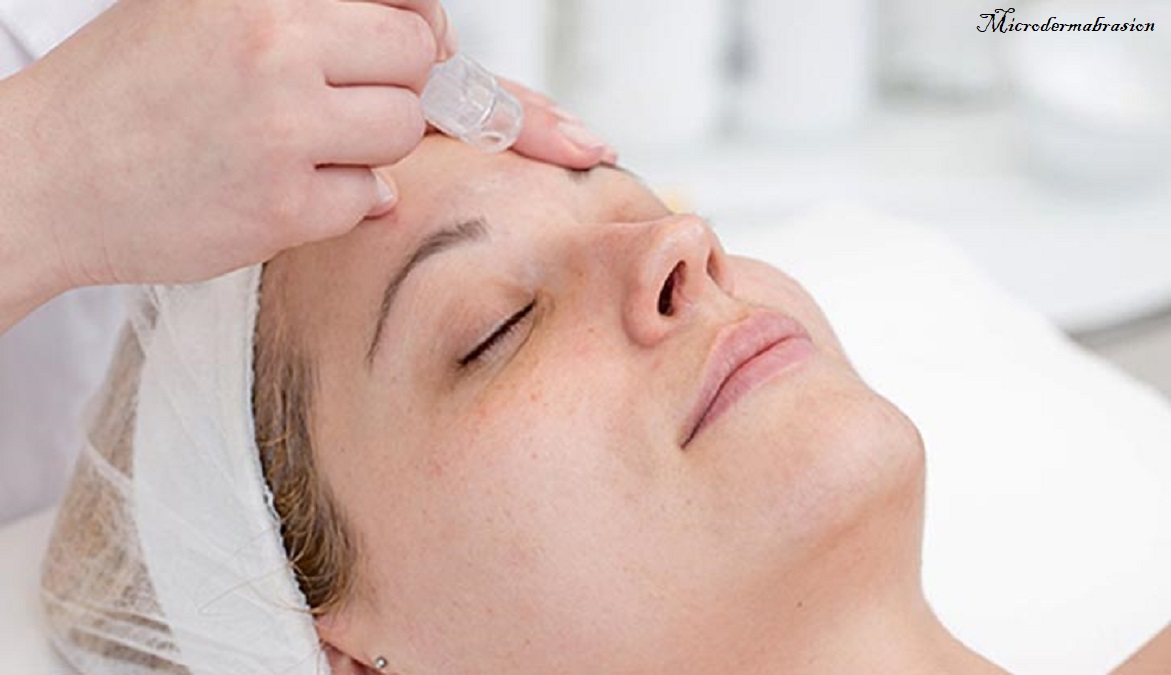
A common non-invasive cosmetic procedure used to exfoliate and revitalize skin is microdermabrasion. Fresher, more youthful skin is revealed behind the outermost layer of dead skin cells, which is removed with a specialized tool. Because of its capacity to enhance skin texture, lessen aging symptoms, and treat a variety of skin issues like acne and hyperpigmentation, this therapy is frequently in high demand.
History and Development
With its origins in Italy, microdermabrasion has been around since the 1980s. With improvements in technology and technique over the years, it has changed dramatically and is now safer and more effective for a greater variety of skin types and issues.
How Microdermabrasion Works
The Science Behind the Procedure
Fine crystals or a wand with a diamond tip are used in the treatment to delicately abrade the skin’s surface. Smoother, cleaner, and more radiant skin results from this mechanical exfoliation, which also speeds up the skin’s natural healing process and increases collagen synthesis.
Types of Microdermabrasion
Microdermabrasion comes in two primary varieties: diamond and crystal. Everyone has a special strategy and advantages.
Crystal Microdermabrasion
With this technique, tiny crystals—typically sodium bicarbonate or aluminum oxide—are sprayed onto the skin via a device. Dead skin cells and the crystals are both vacuum-extracted while the crystals exfoliate the skin.
Diamond Microdermabrasion
This method abrades the skin using a wand with a diamond tip in place of crystals. To accommodate diverse skin kinds and conditions, the wand offers several levels of coarseness. A vacuum also aids in removing the exfoliated skin cells.
Benefits of Microdermabrasion
Skin Texture Improvement
Skin texture is visibly improved by microdermabrasion, which is one of its main advantages. The treatment makes the skin feel smoother and more lively by eliminating the outer layer of dead skin.
Reduction of Fine Lines and Wrinkles
Regular sessions can significantly reduce the appearance of fine lines and wrinkles. The stimulation of collagen production helps to firm the skin and diminish these signs of aging over time.

Minimizing Pore Size
For many people, having large pores can be an aesthetic concern. By clearing debris from pores and unclogging them, microdermabrasion can minimize their size and lessen their visibility.
Treating Acne and Scarring
By clearing clogged pores and encouraging a quicker turnover of skin cells, microdermabrasion works well for treating mild to moderate acne. Evening out the surface of the skin, can also aid in lessening the visibility of acne scars.
Preparing for a Microdermabrasion Session
Consultation with a Dermatologist
Seeking advice from a dermatologist or other qualified skin care specialist is crucial before to microdermabrasion. They will evaluate your skin type, talk to you about your objectives, and decide is the best course of action for you.
Skin Care Routine Before the Procedure
Before the operation, taking good care of your skin can improve the outcome. At least one week before your appointment, refrain from utilizing any exfoliating products or treatments, such as chemical peels and retinoids. It’s also essential to protect your skin from the sun and stay hydrated.
The Microdermabrasion Procedure
Step-by-Step Process
Cleaning: To get rid of all debris, oil, and makeup, the skin is carefully cleaned.
Exfoliation: The skin is exfoliated using the selected microdermabrasion tool (diamond or crystal).
Suction: Any leftover crystals and exfoliated skin cells are extracted using a vacuum.
Moisturizing: To protect and hydrate the skin after a treatment, a calming moisturizer and sunscreen are used.
What to Expect During the Session
Usually: the process takes between thirty and sixty minutes. A slight scratching or vibrating feeling is possible, but it shouldn’t hurt. The majority of individuals say it’s a cozy and unwinding experience.
Post-Procedure Care
Immediate Aftercare Tips
Your skin can feel a little irritated or turn somewhat pink after the operation. It’s critical to protect your skin from the sun by staying hydrated. To calm the skin, use a mild cleanser and moisturizer.
Long-term Skin Care Advice
Create a consistent skincare regimen that incorporates sun protection, hydration, and mild exfoliation to preserve the benefits. Frequent microdermabrasion treatments, separated by roughly four to six weeks, can help maintain the results.
Potential Side Effects and Risks
Common Side Effects
Mild redness, swelling, and sensitivity are common side effects that usually go away a few hours to a day after the treatment.
Rare but Serious Risks
While uncommon, some people may get infections, bruises, or hyperpigmentation. Minimize these risks by selecting a trained specialist and adhering to the recommended aftercare.
Microdermabrasion vs. Other Skin Treatments
Microdermabrasion vs. Chemical Peels
While exfoliating the skin is the goal of both procedures, chemical peels remove the outermost layer of skin using acids, whereas employs physical exfoliation. Chemical peels might have longer healing times and be more severe.
Microdermabrasion vs. Dermabrasion
More extreme skin-removal techniques like dermabrasion are appropriate for severe scarring and deeper wrinkles since they remove deeper layers of skin. requires less downtime and requires less intrusive procedures.
Microdermabrasion vs. Laser Resurfacing
Laser resurfacing stimulates the creation of collagen and removes skin layers using light energy. Usually reserved for more serious skin problems, it requires more downtime than microdermabrasion.
Cost of Microdermabrasion
Factors Affecting the Cost
The skill level of the practitioner, the clinic’s location, and the kind of instrument utilized can all affect the cost of microdermabrasion.
Average Cost per Session
A single session can cost anything from $75 to $200 on average. Purchasing packages or several sessions at a discounted price is common.
Is it Worth the Investment?
Many people believe that investing in microdermabrasion is important for preserving healthy, youthful skin because of its many benefits and little risk.
DIY Microdermabrasion Kits
How Effective are Home Kits?
Although home microdermabrasion kits are becoming more and more popular, their efficacy varies. Even though they may offer a light exfoliation, they often lack the potency of expert treatments.

Pros and Cons of At-Home Treatments
Pros: Skin maintenance in between professional appointments, cost-effectiveness, and convenience. Cons: Greater chance of skin irritation, potential for incorrect application, and decreased efficacy.
Microdermabrasion for Different Skin Types
Suitability for Various Skin Types
The majority of skin types, including normal, oily, and dry skin, can benefit from microdermabrasion. However, people with extremely sensitive skin or those with specific skin conditions must see a dermatologist beforehand.
Special Considerations for Sensitive Skin
Selecting a kinder type of microdermabrasion and adhering to a customized aftercare routine is essential for preventing irritation on delicate skin.
Choosing a Professional for Microdermabrasion
Qualifications to Look For
Verify the expert’s certification and experience using microdermabrasion. Making an informed choice can also be aided by reading reviews and consulting recommendations.
Conclusion
Recap of Key Points
Improved texture, less aging indications, and cleaner skin are just a few advantages of microdermabrasion, a multipurpose and potent skin treatment. It can be a useful addition to your skincare routine if you prepare it properly and take care of it afterward.
Final Thoughts on Microdermabrasion
You may obtain healthier, more beautiful skin whether you choose at-home kits or professional treatments. The optimum course of action for your skin type and issues should always be determined by consulting a skincare expert.
FAQs After the Conclusion
Is Microdermabrasion Painful?
No, the majority of people report that is a painless process.
Can Microdermabrasion Treat Deep Acne Scars?
While it can help make mild to moderate acne scars look better, more extensive treatments like dermabrasion or laser resurfacing can be necessary for deeper scars.
How Soon Can You See Results from Microdermabrasion?
Following the initial session, the skin seems smoother and more luminous, with noticeable results. It can take more than one session to see more noticeable progress.
Are There Any Long-Term Risks Associated with Microdermabrasion?
Long-term dangers are low when done professionally by a trained practitioner. Following the aftercare guidelines is essential to preventing problems.
Can Pregnant Women Undergo Microdermabrasion?
Indeed, most people agree that is safe to use while pregnant. Nonetheless, it’s advisable to speak with a doctor before having any cosmetic surgery done when expecting a child.
Skin
SBLA Beauty: Transforming Skincare with Innovation and Excellence
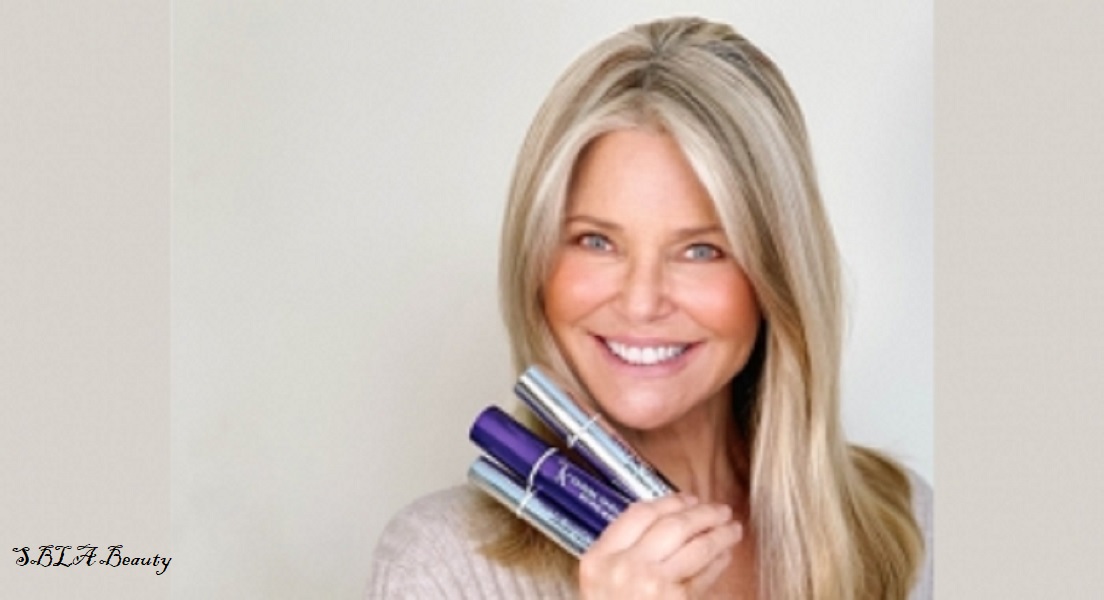
SBLA Beauty is causing a stir in the skincare industry with its state-of-the-art goods and creative methodology. However, what precisely is SBLA Beauty, and why is it becoming so popular? This piece delves deeply into the core of SBLA Beauty, examining its history, line of products, and unique selling points within the congested beauty market.
The Origins of SBLA Beauty
Founders and Their Vision
The goal of SBLA Beauty’s founding was to transform the beauty business by providing skincare products that are backed by science and work. Inspired by their love of wellness and beauty, the creators set out to develop products that would improve skin health in addition to looks.
Initial Products and Market Entry
SBLA Beauty’s journey began with a small range of innovative products designed to address common skincare concerns. Their market entry was marked by a commitment to quality and efficacy, quickly earning them a loyal customer base.
Product Range
Overview of SBLA Beauty Products
Each product in SBLA Beauty’s extensive lineup is designed to address a certain skincare requirement. Everybody can find something they like at SBLA, from cutting-edge beauty gadgets to necessary skincare products and anti-aging remedies.
Anti-Aging Solutions
SBLA Beauty is particularly well-known for its anti-aging products. These products assist consumers obtain a youthful, beautiful complexion by combating the indications of aging.
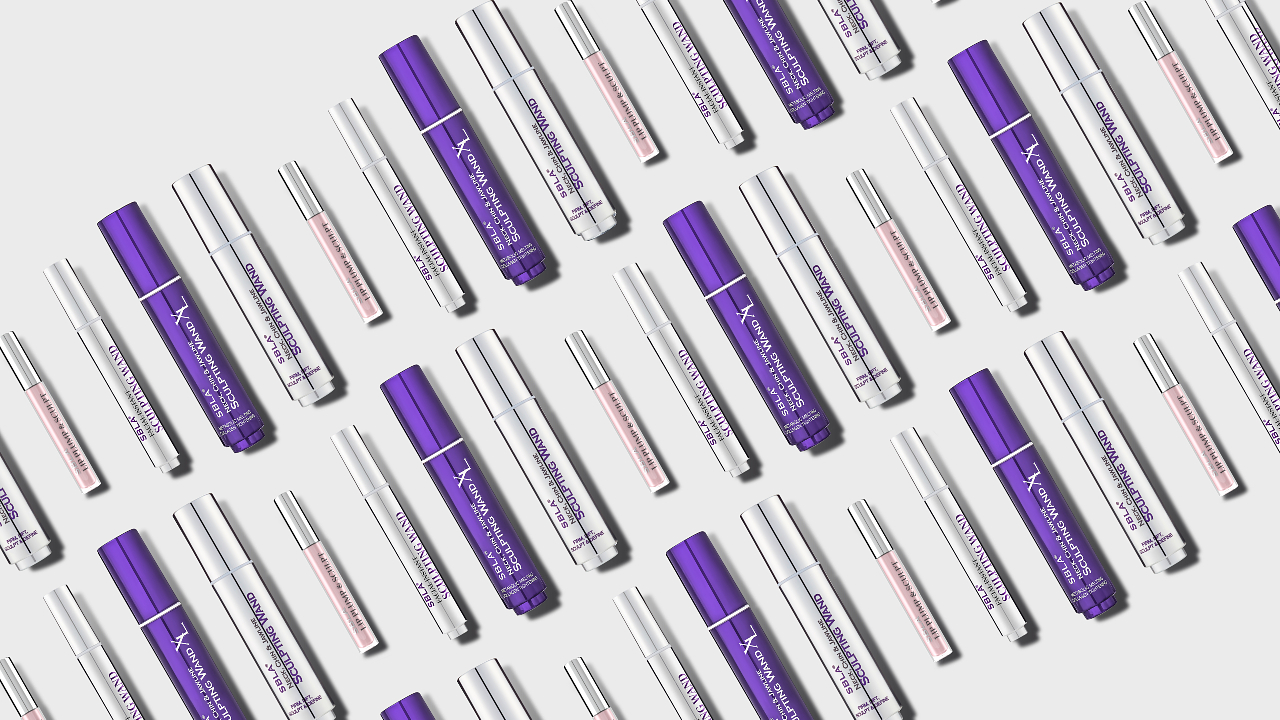
Skincare Essentials
Beyond anti-aging, SBLA provides a wide range of necessary skincare products. These consist of exfoliators, cleansers, serums, and moisturizers that are made with premium ingredients to protect and nourish the skin.
Beauty Devices
When it comes to beauty gadgets, SBLA Beauty also shines. By augmenting the efficacy of their skincare products, these inventive instruments enable people to receive salon-quality treatments at home.
Innovative Technology
Patented Technologies
Leading the way in skincare innovation, SBLA Beauty uses proprietary technology to provide remarkable results. These innovations guarantee that all skin types can safely and effectively use the products.
Unique Ingredients
The company is renowned for using unusual, validated scientific substances. These components have been carefully chosen to address particular skin issues and produce noticeable effects.
Research and Development
What distinguishes SBLA Beauty is its considerable emphasis on research and development. The company keeps funding scientific research to create novel, ground-breaking solutions and enhance its current line of products.
Anti-Aging Solutions
Face Sculpting Wand
SBLA’s Face Sculpting Wand is one of its best-selling items. With the use of this cutting-edge tool, wrinkles and fine lines are less noticeable by lifting and firming the skin.
Neck, Chin, and Jawline Sculpting Wand
The Neck, Chin, and Jawline Sculpting Wand is another revolutionary product. This gadget addresses the thin skin in these regions and offers a non-invasive remedy for elasticity loss and drooping.
Benefits and User Experiences
The firmness and texture of the skin are significantly improved, according to users of SBA’s sculpting wands. These gadgets are commended for being simple to utilize and producing noticeable outcomes.
Skincare Essentials
Serums and Moisturizers
The serums and moisturizers offered by SBLA are designed to hydrate, nourish, and revitalize the skin. These are the items you need to keep your skin looking young and healthy.
Cleansers and Exfoliators
Any effective skincare regimen starts with a thorough washing and exfoliation. SBLA provides exfoliators and cleansers that are mild yet effective in removing impurities and encouraging skin renewal.
Sun Protection
Protecting yourself from the sun is essential to avoiding early aging. The sun protection products from SBLA offer extra skincare benefits in addition to shielding the skin from dangerous UV radiation.
Beauty Devices
Overview of Beauty Devices
The gadgets from SBLA Beauty are made to work in tandem with their skincare line, amplifying its potency and providing salon-quality results at home.
How They Work
These gadgets penetrate the skin’s surface using cutting-edge technology, which enhances skin texture and encourages the creation of collagen.
User Testimonials
Their users highly praise the transformational impacts of SBA’s beauty devices. Within weeks of use, many report seeing noticeable improvements in the firmness and tone of their skin.

SBLA Beauty Philosophy
Commitment to Quality
SBLA Beauty is all about quality. The company is dedicated to producing goods that work by utilizing the greatest materials and innovations.
Sustainability Practices
SBLA is committed to sustainability as well. To ensure they have the least possible negative environmental impact, they prioritize eco-friendly techniques while developing new products and packaging.
Customer-Centric Approach
At SBLA Beauty, client happiness is our first concern. The company is renowned for providing exceptional customer service and being committed to fulfilling the demands of its clients.
How to Use SBLA Products
Step-by-Step Guides
Detailed usage instructions for SBLA products are provided for optimal efficacy. By following these guidelines, individuals can make the most of their skincare regimen.
Tips for Maximizing Results
SBLA advises using their devices and products as instructed and adhering to a regular skincare regimen for the greatest results.
Customer Reviews and Testimonials
Real-Life Experiences
Several delighted customers have left favorable reviews for SBLA Beauty. These endorsements demonstrate the brand’s efficacy and the observable advancements that customers have encountered.
Before and After Transformations
The remarkable changes seen in the before and after images submitted by SBLA users further attest to the effectiveness of their goods.
Expert Endorsements
Experts and specialists in skincare have praised SBLA Beauty, lending credence to the company’s claims and product advantages.
Comparisons with Other Brands
SBLA vs. Traditional Skincare Brands
SBLA distinguishes itself from conventional skincare brands with its cutting-edge methodology and utilization of cutting-edge technologies.
Advantages Over Competitors
SBLA has an advantage in the beauty sector because of their dedication to efficacy, quality, and client pleasure.
Where to Buy SBLA Beauty Products
Official Website
The official SBLA Beauty website is the best place to buy their products. This guarantees that you get real goods and can take advantage of exclusive deals.
Authorized Retailers
Additionally, approved retailers provide SBLA items online and in a few physical locations.
Online Marketplaces
Popular online marketplaces provide SBLA products for increased convenience. However, to prevent purchasing fake goods, it’s crucial to confirm the seller’s legitimacy.
Pricing and Value
Product Pricing Overview
A wide spectrum of consumers can purchase products from SBLA Beauty at different pricing points.
Cost vs. Benefits Analysis
Even though SBLA medications can be more expensive, their long-term advantages and efficacy make them an investment well worth it.
Loyalty Programs and Discounts
In order to reward its consumers and provide extra value and savings, SBLA offers loyalty programs and discounts.
Future of SBLA Beauty
Upcoming Products and Innovations
SBLA is always coming up with new ideas and growing its product range. There are constantly exciting new developments and goods to look forward to.
Market Expansion Plans
The company wants to reach a wider audience globally by offering its cutting-edge skincare products.
Vision for the Future
In the future, according to SBLA Beauty, everyone will have access to cutting-edge skincare products that will enable them to have the greatest skin possible.
Conclusion
SBLA Beauty’s cutting-edge products and dedication to excellence are revolutionizing the skincare industry. SBLA offers something to offer whether your goal is to prevent symptoms of aging, keep your skin healthy, or just make your beauty regimen better. It distinguishes itself as a brand that genuinely cares even more with its commitment to sustainability and client happiness.
-
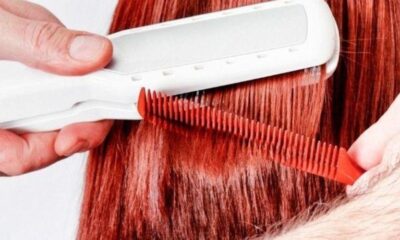
 Hair5 months ago
Hair5 months agoDoes a Flat Iron Kill Lice? Fact or Myth?
-
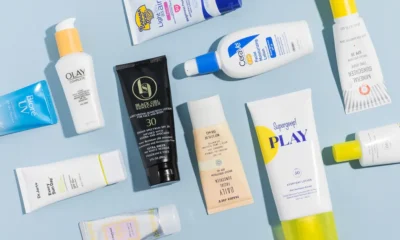
 Skin5 months ago
Skin5 months agoNatural Oil-Free Face Moisturizer Reviews & Buyers Guide
-
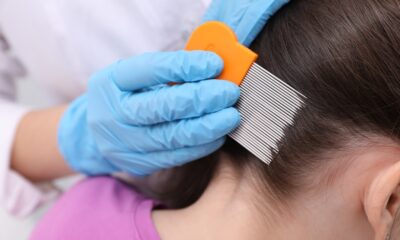
 Hair5 months ago
Hair5 months agoDoes a Flat Iron Kill Lice? Fact or Myth?
-
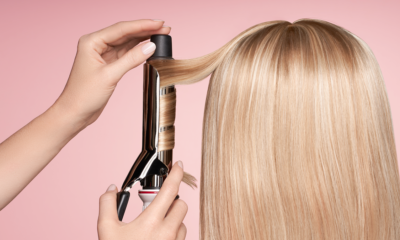
 Hair5 months ago
Hair5 months agoHow to Curl Your Hair with a Flat Iron for Beginners
-
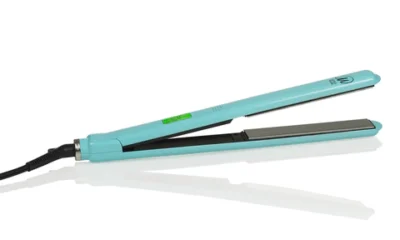
 Hair5 months ago
Hair5 months agoTitanium Flat Iron vs. Ceramic
-
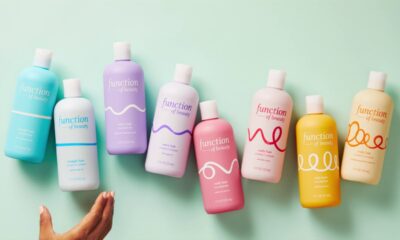
 Hair5 months ago
Hair5 months agoFunction of Beauty: Personalized Hair Care for Your Unique Needs
-

 DIY Cosmetics4 months ago
DIY Cosmetics4 months agoEmpire Beauty School:
-
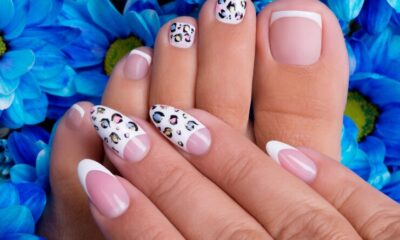
 Skin4 months ago
Skin4 months agoBeautiful Nails: Tips and Tricks for Healthy and Gorgeous Nails
